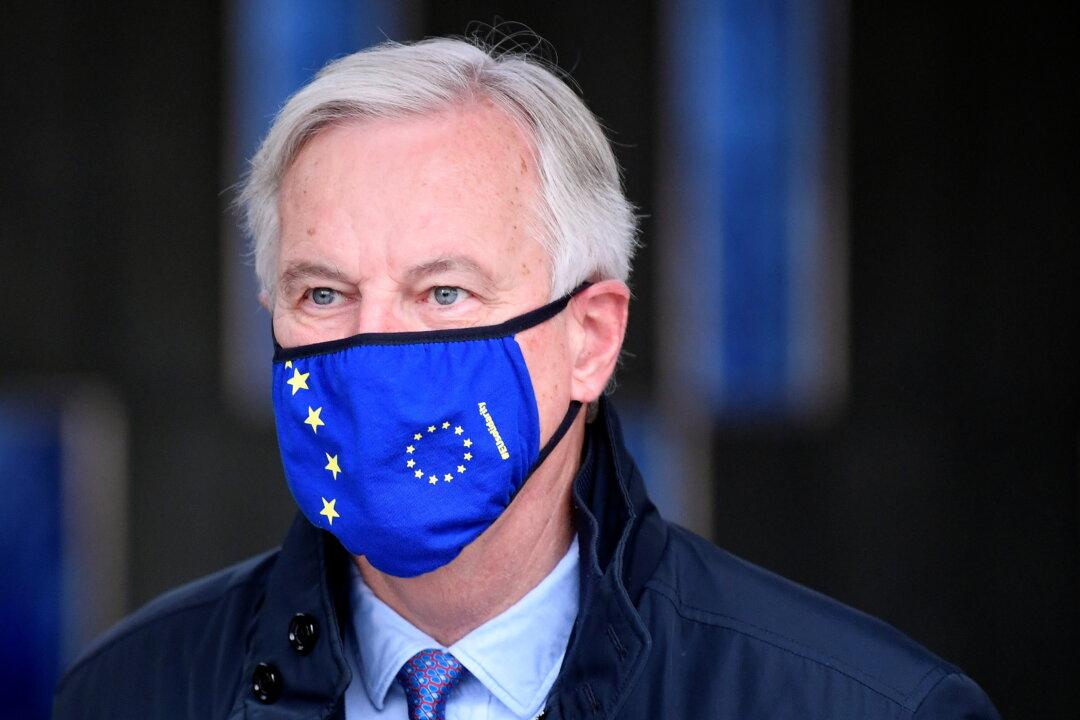The chief EU trade negotiator is heading to London on Friday evening to resume face-to-face Brexit talks, after he was forced into quarantine last week by a positive COVID-19 test in his team.
With just five weeks now left before the UK leaves the trading block—with or without a deal—negotiations between EU negotiator Michel Barnier and his UK counterpart David Frost were forced online this week.





